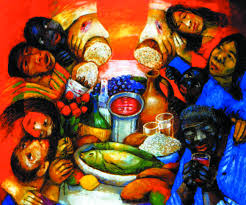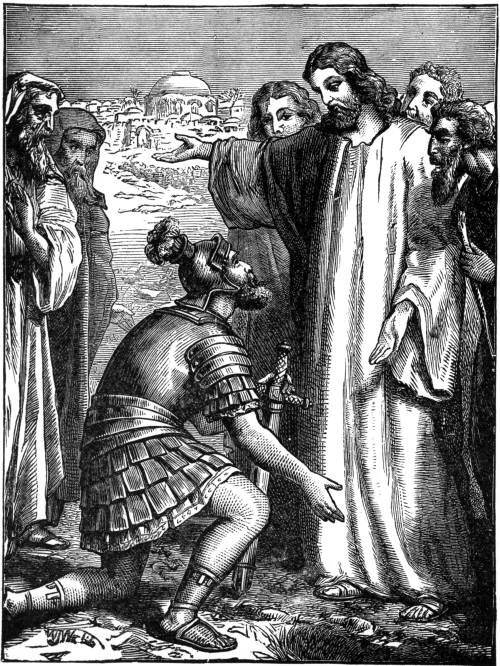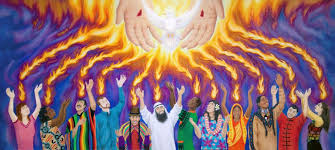
Life is full of transitions. Right from the beginning of life, you experience change. Your life changed when you left home for the first time. Your life changed when you graduated from College or University.
Your life changed when you got married. Your life changed when you had your first child. You experience these changes throughout life. The challenge is how to manage life’s transitions.
I am going through significant change. I left the full-time congregational ministry position in the United Church of Canada to start a Life Coaching business in my mid-fifties. I have been a minister for twenty-five years, and so much of my identity is with congregational leadership. I loved my job, but I had come to a ti
me when I was experiencing a call to coaching. I had been feeling this for a while, but fear of change prevented me from acting until recently.
Changing my career is one of the most difficult things I have done.
I want to work with people who want to better their lives. It is such a thrill to experience people growing through coaching. My job in the congregation was no longer meeting my needs.
For the good of my health, I needed to make a change.
But this new path is requiring me to learn a lot of new things from going to coaching school and learning the tools to become an entrepreneur. It is both exciting and overwhelming at the same time.
Not everybody understands why I am doing what I am doing. I keep having to tell people I have not retired, I am merely going into a new field. I am learning to be okay with it.
This experience taught me Nine powerful tips to manage life’s transitions.
1. Ground Yourself:
Grounding yourself is all about the practice of living in the moment.
What do you find helpful to relax your muscles? Do you like to practice yoga, play a musical instrument, walk, get a massage? When your muscles are relaxed, help you to enjoy living in your body. Get comfortable with paying attention to your body. Your body offers you great wisdom every moment of the day.
What are you feeling in your heart? You need to be careful that you don’t confuse thinking with sensation. How do you know the difference? You might ask these questions: Does your chest feel open or closed? Does your chest feel warm or cold? Are you feeling happy or sad? Are you feeling hopeless or hopeful? Are you feeling calm or frazzled? With practice, you will notice the difference.
To stay grounded you need to acknowledge your emotions without any judgment and let them go. There are no bad feelings. They come and go. Each different reaction will give you a clue about your well-being and how you need to respond to staying fully present in the world. A healthy person will be aware of the many different emotions you feel each day. You are not your emotion!
There are many ways to quiet the mind. Have you tried to guided meditation or breath exercises? An excellent meditation App is called Insight Timer and is available on Google Play and at the App Store.
Listening to classical music can calm the mind. Going for a walk is great for our mental wellbeing if we treat it as a form of meditation. If you love gardening, this is an excellent way to become more present. Do something you enjoy doing that helps you to calm your mind.
2. Pay Attention:
When you are grounded, it is much easier to pay attention to your inner and outer world because you are living in the present. You have been blessed with vast spiritual knowledge if you just pay attention.
Stay attuned to your body. If you are feeling sore, tired, uptight, and strained are signs that you need to make changes in your life. Maybe you need to rest more. Perhaps you need to get more exercise. Maybe you need to spend more time with family and friends.
These sensations may be pointing out more significant concerns. Maybe you need to get help for your relationship or end it. Perhaps you need to get a new job that is more suitable for your well-being. Possibly, you need to see a doctor, a counselor or coach.
When you are grounded in the sensations, emotions, and thoughts of our bodies, there is much wisdom to be learned. The knowledge from our inner selves can help us to make smoother change throughout our lives.
3. Share what is going on in your life with a friend, spouse or family member:
As human beings, we are intended to be in a relationship with others. You might think you can do life all yourself, but this is impossible. We need each other. We need each other for companionship, play, work, and survival.
Your friends, family, and colleagues are often able to see things in yourself that you can not see yourself.
When you are going through challenges in life, it doesn’t seem as dark when you have someone else to walk with you through the ups downs.
In the end, a good friend is a person who over a period of years is there for you as you are for them. If someone consistently is sucking the life out of you. You either need to define some boundaries or end that relationship.
4. Exercise:
Exercising helps you to remain connected with your body, heart, and mind. It helps you to move into the present. Being focused at the moment, helps you to stay open to the universal wisdom of the earth.
When you honor your body, your heart and mind, everything begins to work in harmony. You know what you need to be about in life. Life becomes one of a surprise because you never quite know where each day will take you. The big difference is that you find this exciting instead of scary.
If you are driven to exercise, you are probably not living in harmony with yourself. But if exercise becomes a daily practice of caring for yourself then you are moving in a healthier direction. You will not feel forced and desperate. You will feel satisfied each day even if you are not feeling at your best.
Exercise will just feel right!
5. Play
Can you imagine a world without play? When you were a child, this naturally came to you. Games were how you experienced the world. The game is how you worked out conflict. The play is how you stayed fit. This how you enjoyed the company of other people. Playing is how you learned.
Managing life’s transitions through play is an excellent way for you to weave your way through the ups and downs of life. How do you like to play? Here are some ideas that you might enjoy?
· Golf
· Tennis
· Bowling
· Painting pictures
· Photography
· Singing
· Dancing
· Hiking
And much more!
I encourage you, along with me, to reclaim the gift of play. Life will become more fun and enjoyable. You will be more fun making you desirous to others. You will stay healthier. Moving through life’s transitions will become easier. When you are working, you will probably be more efficient, happy and satisfied.
6. Befriend Your Fear:
You are programmed to be fearful of dangerous things that can hurt you. If you were a hunter in the early human era, you were afraid of wild animals who could kill you. Mothers in ancient times stayed attuned to their physical environment with its many dangers.
You were fiercely protective. The trouble is that we have moved so quickly into the modern age to a sedentary way of life our nervous system has yet to adjust.
So today your nervous system is activated when you don’t need it be. With breath work, bodywork and exercise you can manage this old automatic response by befriending your fear. All you need to do is allow yourself to feel the fearful sensations, emotions, and thoughts. When you can be with these painful vibrations, emotions, and beliefs, they gradually begin to lose their power over you.
Claim your freedom and roar like a lion!
7. Learn Valuable Lessons:
You are always learning! When you stay as present as you can there is so much to learn each day. There are no mistakes, only opportunities to learn more about yourself and the world. When you can learn through the trials and tribulations of life each day gets a little more comfortable.
Your ego is always trying to protect you. The trouble is that the ego usually likes the status quo. So if you still listen to your inner critic, that part of you that wants you to stay safe through staying with the tried and true; you are going to miss a lot in life and have great difficulty dealing with the surprises.
When you do try on new learnings, it takes practice to live them out. Be gentle with yourself as you try living in new ways. Celebrate every achievement no matter how small it may seem to you.
The more you practice lifelong learning in your life the easier and more exciting it will become!
8. Take Time for Rejuvenation:
You live in a busy world. With all the time-saving devices you are given the illusion that you can do more. Finding balance in your life is an on-going learning. A right place for you to start is to learn how to say NO to activities/jobs that are not in your best interest. Life is short, so you need to use each moment well.
No matter whether or not you are introverted or extroverted you need to find the right balance of time for yourself or with companions. Locate the balance for you that is regenerative. You need balance, and you are the only one that will know what you need.
Slow down and smell the roses!
9. Be Yourself:
Most of all, be yourself! Don’t try to be anyone else but yourself. You are the supreme gift to the world when you bring your particular gifts and skills to the world.
When you can be yourself, you do not need to be in any competition with others. All you need to do is allow others to be themselves and don’t let your ego trick you into thinking you need to be someone else.
You are the most fantastic person in the world! But don’t forget every person is the most amazing person in the world.
So go out and be you in all the fabulous you can be!
How to manage life’s transitions is one of the most critical skills you learn. We do it by grounding ourselves, paying attention, sharing with a friend or family member, exercising, playing, befriending your fear, learning valuable lessons, taking time for rejuvenation, and being yourself.

With perseverance, you can begin to name the habits that are no longer benefiting you. Once you become aware of patterns that are no longer serving you, then have the choice to develop healthier ways of being. The more freedom you feel helps you to manage life’s transitions with greater ease.
There is a better way to live! Go and enjoy your life.
Roland Legge offers presence based life coaching through REL Consultants for individuals, couples, and organizations to help them to be the best they can be. For more information, please arrange for a free 30-minute discovery call by phoning Roland at 1 306 620-7478 or book your appointment online. Please click on “Discovery Call.”
This article was first published by REL Consultants








